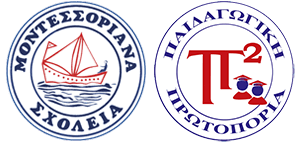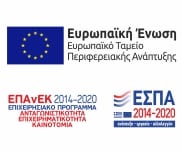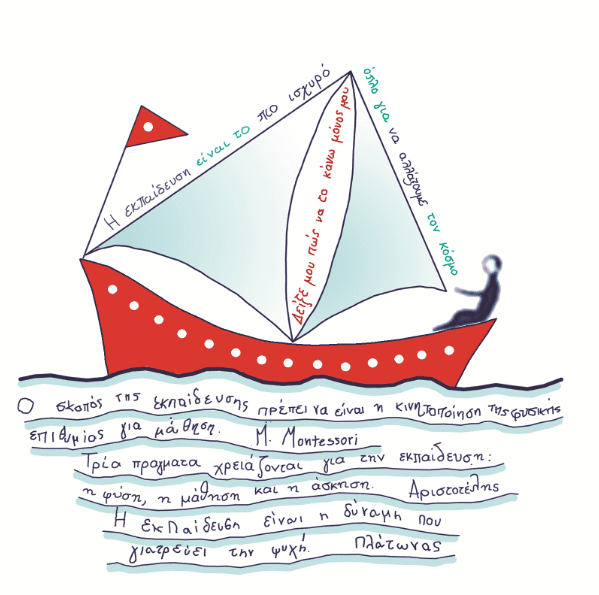
Athens Montessori School of Greece was founded in 1956. Τhe original premises were in Kalamaki up until 1960 and later in 1960 the school moved to Patissia. Since September 1976 the school has been operating in the Tatoi-Varibobi area.
The Montessori school is authorized by the Ministry of Education to run according to the Montessori method. It employs all the essential teaching aids and materials for both Primary, Nursery school and Kindergarten, which are manufactured in special factories in Europe.
Athens Montessori School of Greece was founded by Ms. Kaiti Zachopoulos and Mr Thanasis Zachopoulos and it is currently directed by Ms. Katerina Zachopoulos. Mr Thanasis Zachopoulos and Ms Katerina Zachopoulos have both completed their post graduate studies in order to achieve the best application of the Montessori system in Greece. Children of 2 1/2 up to 12 years of age are accepted into Kindergarten and Primary school and children of 13-15 years are accepted into Secondary School.
The teaching staff is carefully selected, specifically trained and directed by the Principals of the school so that a uniform formula is followed regarding the children training and cultivation.
Our School is approved by the Association Montessori International (A.M.I). (International organization for the promotion and supervision of the Montessori system). We are also the exclusive representative of this organization in our country.
We update our teaching methods through scientific directives sent to all the Montessori schools worldwide by the A.M.I. Our teachers attend relevant conferences and seminars on a regular basis. The teaching aids help us follow the Montessori principles a) adjustment in development b) avoidance of huge school buildings that are not suitable for young ages.
Our school is characterized by its family atmosphere. Schools of 1000 or 2000 children are not easily controlled since it is very difficult for the directors of the school, who are responsible for the students’ progress, to know and relate with every student individually and deal with their different problems, in order to direct the teaching staff.
Our school follows the Montessori system and operates according to the principles of projects that students familiarize themselves with on a global level.
The teaching aids help us apply the scientific way of consolidation of knowledge. Every day, during the first two periods, children work with the material individually or in small groups. They are given the opportunity to fully comprehend what the teacher has taught them, and they also solve all their problems by themselves. As a result, they manage to hone their perception skills. Through the material, the children are given the opportunity to practice and also to apply self-correction strategies.
This is considered to be one of the major differences of the Montessori method of teaching, compared to those applied in ordinary schools. (Kindergartens – Nursery schools).
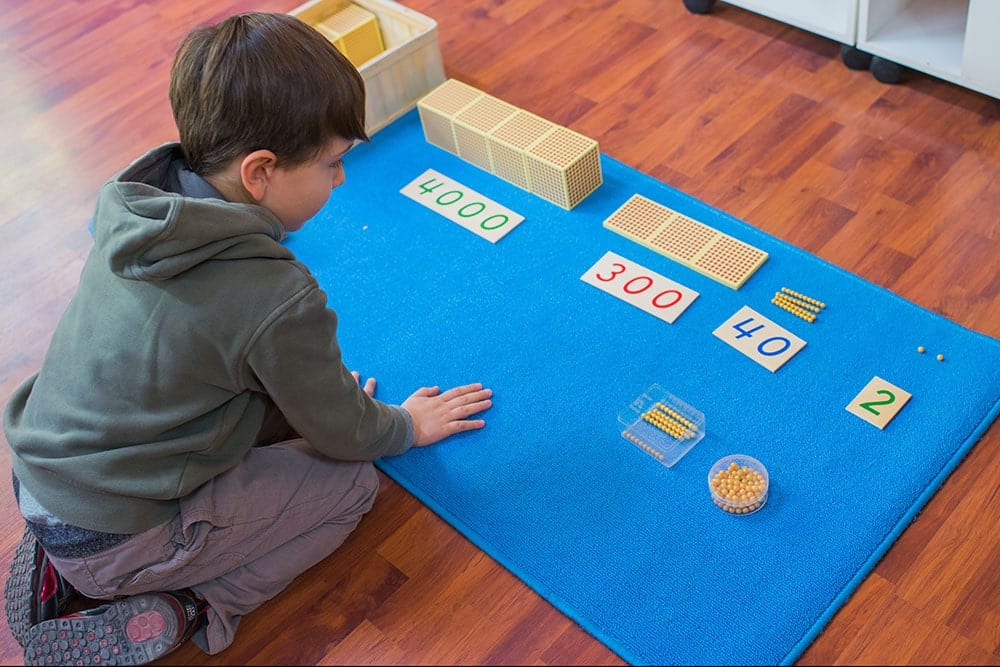
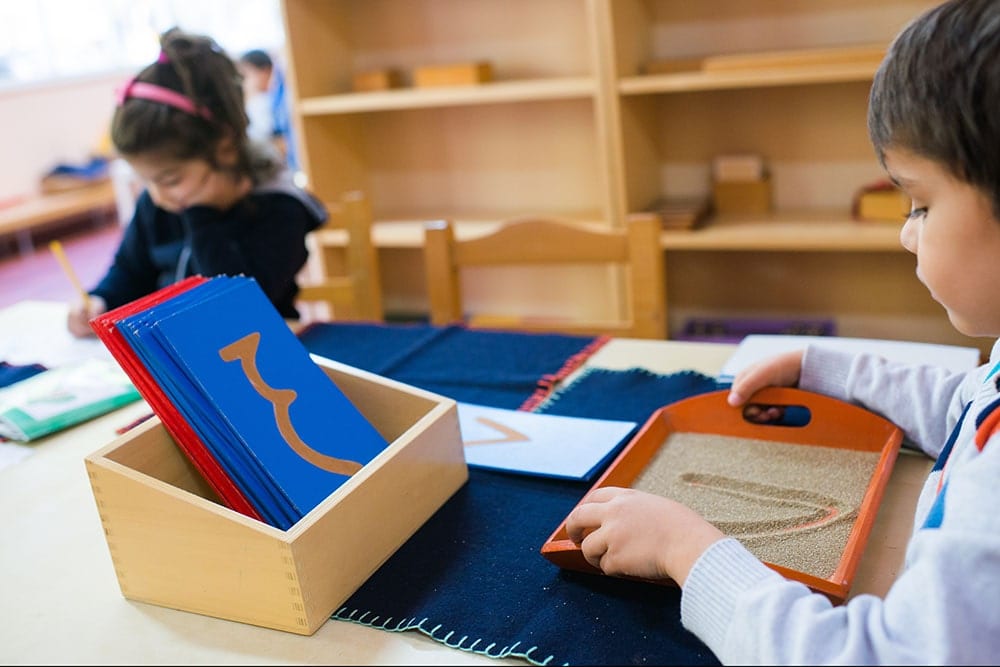
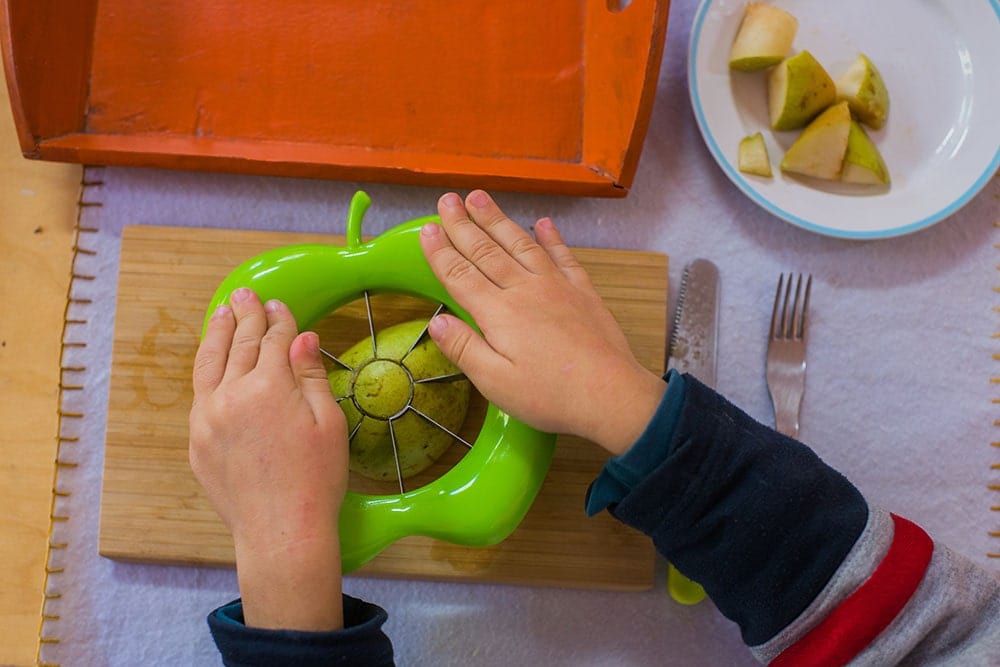
Nursery and Kindergarten
The program of Nursery school and Kindergarten includes training with the Montessori teaching aids, performing perceptual sensorial exercises, learning practical life skills as well as doing rhythmic gymnastics and learning music according to the principles of Dalcroze and Orff. Learning practical life skills helps the children become capable and independent people. A program of looking after animals and plants is also offered, as well as a creativity enhancement program aiming to assist the development of fundamental culture (painting, arts & crafts). There are also entertainment sessions such as puppet shows, games, tales, dancing and singing. Once the child shows that he/she has fulfilled all the aforementioned needs and abilities and the willingness to carry on, numbers and letters are demonstrated to them so that they can deal with them as long as they wish, without external pressure. Additionally, our school offers the latest interactive boards and constant Internet connection.
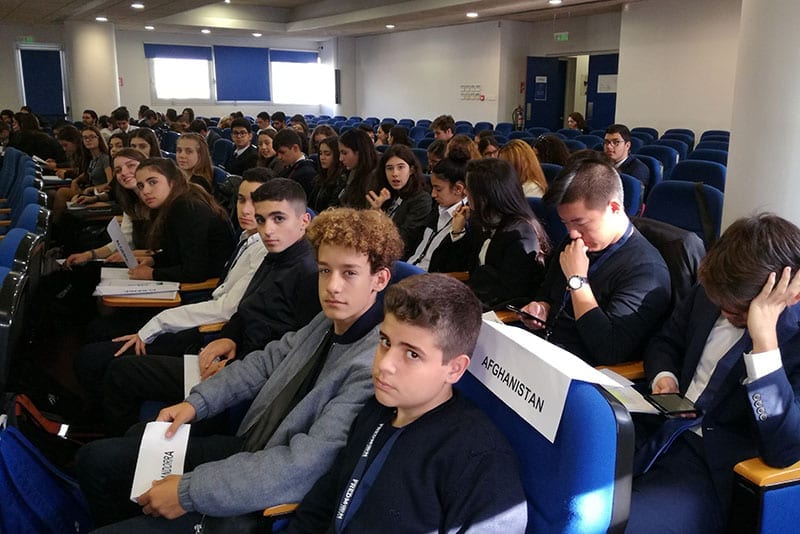
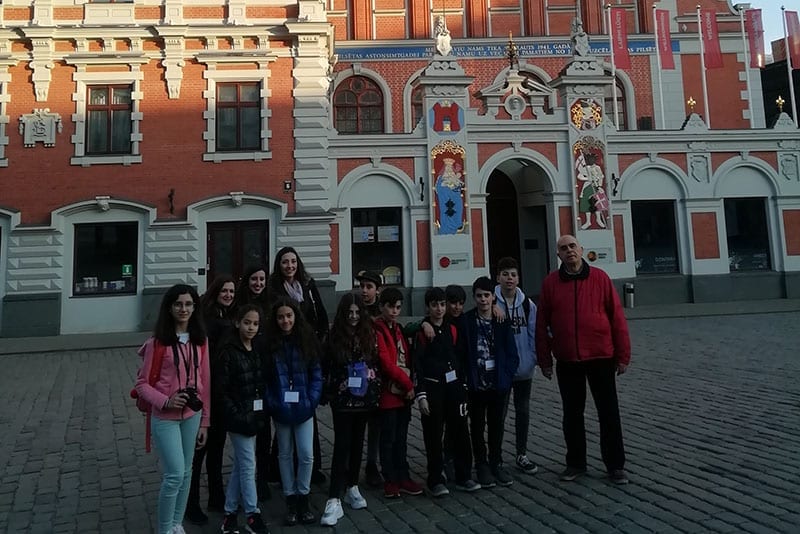
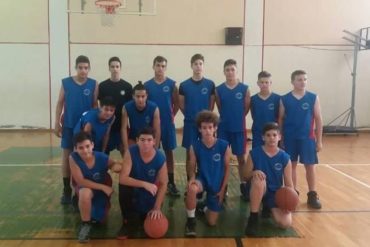
Primary school
Our students manage to exceed the national Curriculum of Ministry of Education with the help of teaching aids and Montessori material, which they use either individually or in groups. Students may occupy themselves with any subject they wish, or they can focus on subjects that attract their interest. The teacher’s role is to guide and encourage them.
The subjects, taught in primary school, are:
a) English, French, German and Italian
b) Music (instrument & rudiments of music with application in children’s orchestra – Orff system)
c) Gymnastics for boys and girls for physical exercise, mental development (concentration, readiness, inner discipline, spiritual freedom).
d) At least five visits to cultural or archaeological venues are arranged during the academic year.
It is important to note that our school offers the latest interactive boards and limitless Internet connection.
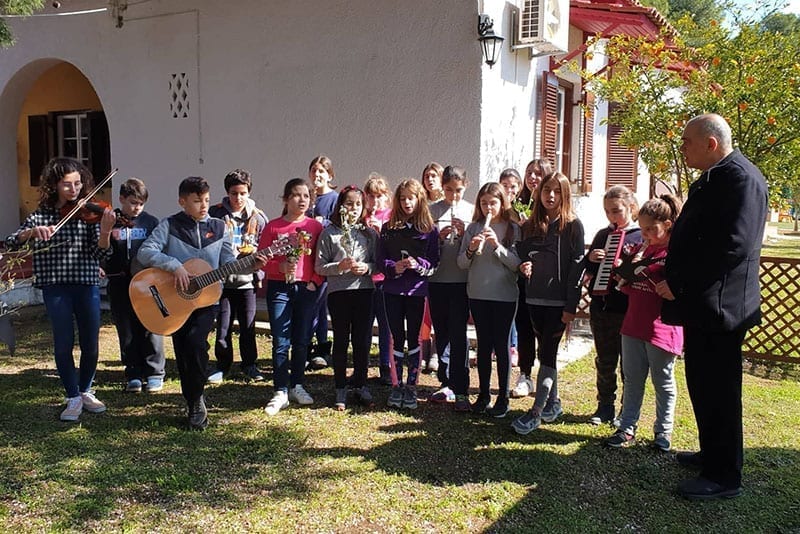
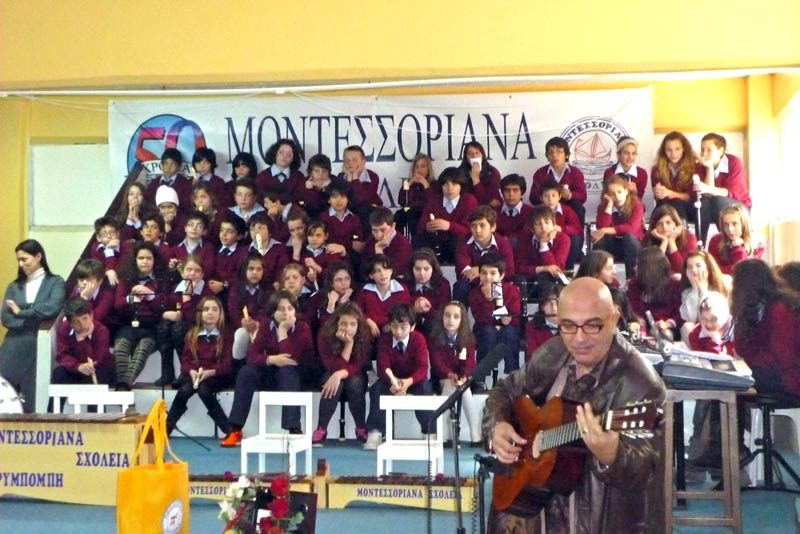
Music
The subject of music is considered to be of a very advanced level similar to the level that music schools have. Children play the recorder by reading notes. As years go by, the musical pieces have progressive difficulty, so, when the students reach more advanced classes, they are able to play instrumental classical pieces.
Our advanced orchestra has performed concerts, not only in several Greek cities but in Europe as well (The Netherlands, Munich, Lausanne, Geneva, Stockholm, Brussels, Luxemburg, Istanbul and Rome). Nursery school children are also musically prepared to receive musical cultivation through certain exercises.
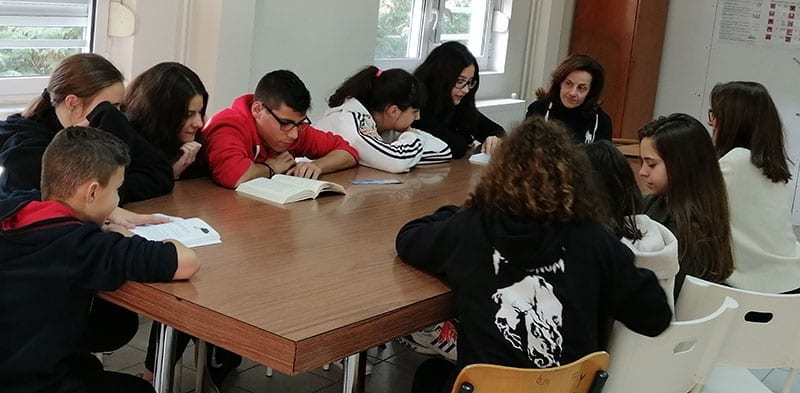
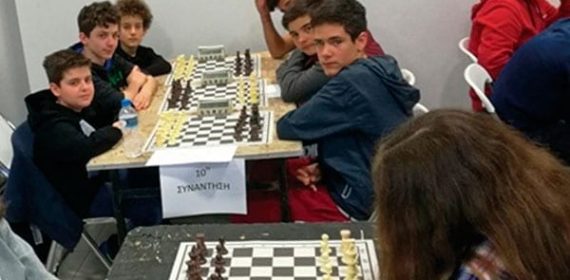
Afternoon
The students may stay at school until 4 o’clock, in order to study their homework or occupy themselves with specific subjects, sports and games.
During the afternoon session, children do most of their work at school so they have only a little homework left to finish at home. Apart from doing their homework for the following day, they also occupy themselves with computer studies, Greek traditional dances, the Italian language, gymnastics, basketball and volleyball, as we consider all of them essential for their development. Moreover, football, chess, robotics and self-defense classes have been currently introduced as extra-curricular activities. If parents wish their children to return home in the afternoon, there is no objection to that, as all main subjects are taught before two o’clock, during the morning schedule. Usually, nursery school children and first graders leave school at 13:45 pm.
The school can also provide full lunch to the students who wish to eat in its dining room. Parents may also give their children packed lunch from home. The packed lunch is served hot and the students are being supervised while they are eating in the dining room of the school.
A school bus service is provided. The students return home by yellow school buses and they are accompanied by experienced staff.
